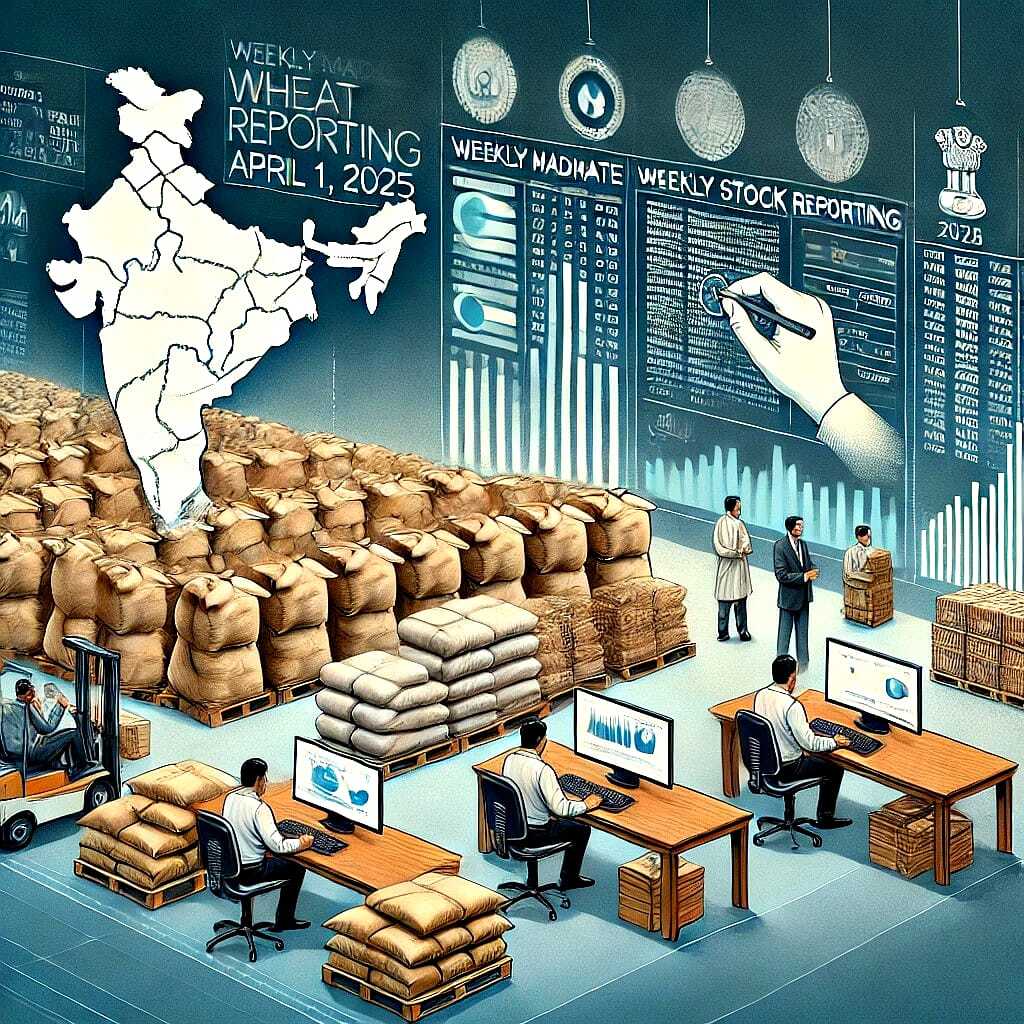The Indian government has announced a mandatory weekly wheat stock reporting requirement for traders, wholesalers, retailers, and processors across all states and Union territories, effective April 1, 2025. This move is part of a larger effort to safeguard food security, maintain price stability, and prevent market manipulation.
Why the New Mandate?
The directive aims to enhance transparency in wheat availability and prevent speculative hoarding or price manipulation. With wheat being a staple in Indian households, any artificial shortage or price increase could have severe repercussions on food security. By closely monitoring stock levels, the government hopes to ensure a steady supply of wheat throughout the country.
Key Features of the Mandate
✅ Weekly Stock Declaration:
All legal entities involved in wheat trading, including traders, wholesalers, retailers, and processors, must declare their wheat stock positions every Friday on the government’s online portal.
✅ Online Reporting System:
Entities are required to register on the government’s online portal if they haven’t already done so. Registration and regular reporting will be crucial for maintaining compliance with the new regulations.
✅ Expiry of Current Stock Limits:
The existing wheat stock limit is set to expire on March 31, 2025, after which the new stock reporting system will come into effect. The Department of Food and Public Distribution (DFPD) will monitor the disclosures and take action if any inconsistencies are found.
Government’s Monitoring and Control
The DFPD will closely scrutinize the reported stock data to detect unusual patterns that could indicate hoarding or artificial scarcity. The objective is to ensure smooth wheat availability and prevent any supply shocks in the market. Implications for Traders and Processors
- Mandatory Compliance: All wheat-related entities must adhere to the new guidelines to avoid potential penalties.
- Improved Market Stability: Enhanced monitoring will ensure that supply chain distortions are minimized, keeping wheat prices in check.
- Preventing Hoarding: Timely stock reporting is expected to deter entities from hoarding wheat, which has often been a cause of price inflation.
Urgent Call for Registration Entities that have not yet registered on the government portal have been urged to do so immediately to avoid any disruption in their operations. The government has made it clear that compliance will be strictly enforced, and failure to report stock levels on time could attract penalties or legal action. Potential Impact on Wheat Prices and Market Dynamics
- Stabilized Prices: Regular monitoring is expected to prevent sudden price spikes due to artificial shortages.
- Enhanced Food Security: Ensuring an uninterrupted wheat supply will help protect vulnerable sections of society from price volatility.
- Market Discipline: The measure will instill greater discipline in the wheat market and reduce speculative trading.
With this initiative, the government aims to ensure market transparency, control price volatility, and guarantee food security in India.
Follow & Subscribe:
👉 Agri-Food Update on LinkedIn for the latest updates and insights.
🌐 Visit us at www.agri-food-update.com for more information!



